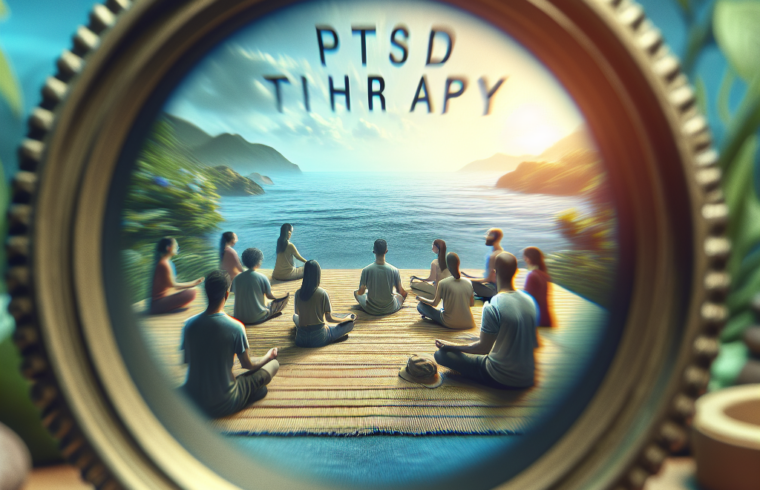==> Thank you for reading this post! Click Here If you are looking for support and Victory over PTSD.
Understanding PTSD and Its Impact
Defining PTSD
Hey there! Let’s dive right into what PTSD really means. Post-Traumatic Stress Disorder is a mental health condition triggered by experiencing or witnessing a traumatic event. I remember when I first heard about PTSD; it brought to light the struggles many face, often not realizing they’re battling something much deeper than just a bad memory.
For those of us who have seen or experienced something truly horrific, PTSD can sometimes feel like a sneaky ghost that lingers around, often manifesting through anxiety, flashbacks, and an overwhelming sense of being on high alert. It’s vital to recognize these symptoms early, not just for ourselves but also for those around us who might be dealing with similar feelings.
Understanding the uniqueness of PTSD is essential. People can experience it differently, and it can stem from various events ranging from military combat to personal loss or even natural disasters. Each person’s journey is different, and that’s totally okay!
Various Therapeutic Approaches
Cognitive Behavioral Therapy (CBT)
One of the most effective treatment options for PTSD is Cognitive Behavioral Therapy. I’ve found that it focuses on changing negative thought patterns into positive ones. It can be an eye-opener, especially when we learn to question and restructure our automatic responses to certain memories or situations.
During my own experiences with therapy, I noticed how powerful it can be to have someone guide you through your thoughts. CBT often involves talking about our thoughts in a safe space, which helps in identifying those pesky cognitive distortions that we sometimes don’t even realize we have!
Implementing tools from CBT has been invaluable. Journaling, for instance, not only helps in processing emotions, but it can also shine a light on those repeated thought patterns. I can genuinely say, if you commit to this process, over time, it can lead to significant mental shifts.
The Role of Mindfulness and Meditation
What is Mindfulness?
If there’s one thing I swear by, it’s the practice of mindfulness. Mindfulness involves being present and fully engaging with the moment while acknowledging and accepting your thoughts and feelings. It sounds simple, but it can be transformative! I often find myself lost in the past or the future, and mindfulness helps pull me back.
Incorporating mindfulness techniques can make a big difference. It’s about training our brains to focus on the here and now, which is particularly beneficial for those dealing with PTSD. Simple breathing exercises or guided meditations can ground you and provide relief in overwhelming moments.
One of my favorite activities is a mindful walk. Whether it’s in the park or just around the block, I often take a moment to notice the surroundings—the colors, the sounds, and even the scents. It’s a delightful way to remind myself that, besides my worries, there’s a whole world out there!
Building a Support System
Finding Your Tribe
When facing the challenges of PTSD, finding a solid support system is crucial. I can’t emphasize enough how much this has helped me! It’s like having a safety net of people who understand what you’re going through, or at least try to. Family, friends, support groups—each plays a role in helping us heal.
Get Support and Help with Recovery! Visit us for more Information and Support
Once I began opening up to my friends about my experiences, I was surprised to discover how many had similar struggles. It’s comforting to talk things out with someone who gets it, you know? Everyone feels alone at times, but being open can connect you with others who share your story.
Also, consider reaching out for professional support. Therapists, counselors, or support groups can provide safe spaces and programs tailored to those with PTSD. Having a mixture of friends and professional guidance can create a balanced support system.
Self-Care Strategies for Healing
Prioritizing Well-Being
Ah, self-care! It’s more than just bubble baths and face masks (although those are nice too). I’ve learned that self-care plays a massive role in managing PTSD. From daily routines to healthy eating habits, taking care of ourselves can enhance our mental resilience.
One of the simplest self-care strategies I’ve adopted is maintaining a regular sleep schedule. PTSD can often lead to sleepless nights, but prioritizing sleep helps reset the mind, making it easier to handle stress and anxiety. A good night’s rest does wonders!
Also, don’t forget about physical activity! The endorphins released during exercise can be a fantastic natural mood booster. Whether it’s hitting the gym, dancing in your room, or simply going for a walk—finding an active routine you enjoy can significantly benefit your mental health.
Frequently Asked Questions
What are the main symptoms of PTSD?
The main symptoms often include flashbacks, intense anxiety, nightmares, and uncontrollable thoughts about the traumatic event. Each person’s experience can vary widely, so it’s essential to acknowledge your feelings and seek help when needed.
Can PTSD be effectively treated?
Absolutely! A combination of therapy types, such as CBT, mindfulness practices, and a strong support system, has proven effective for many people. Treatment is often personalized based on individual needs, so don’t hesitate to explore your options.
How can mindfulness help someone with PTSD?
Mindfulness helps ground you in the present moment, reducing anxiety and allowing you to process emotions without being overwhelmed. It can be a powerful tool for managing symptoms and can lead to profound changes in how you respond to stressors.
Is it essential to have professional help for PTSD?
While personal support systems are valuable, professional guidance can provide specialized strategies and resources to address PTSD effectively. Therapists can offer tailored methods that can make a world of difference.
What role does self-care play in healing from PTSD?
Self-care is vital for anyone dealing with PTSD. It encompasses physical health, emotional well-being, and routine practices that foster positive mental health. Prioritizing self-care helps create a stronger foundation for healing.













